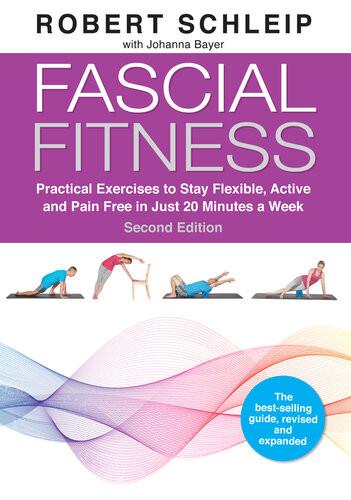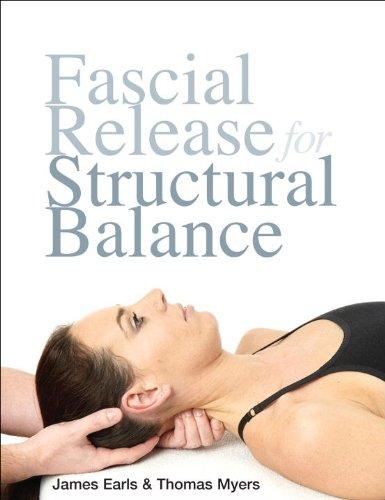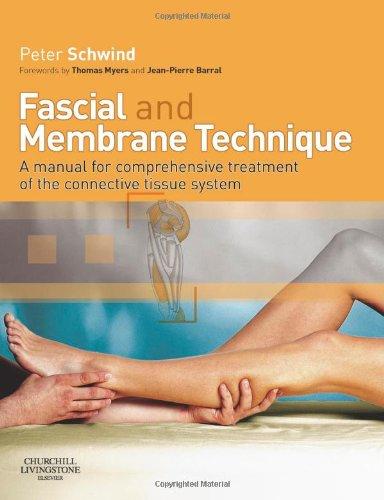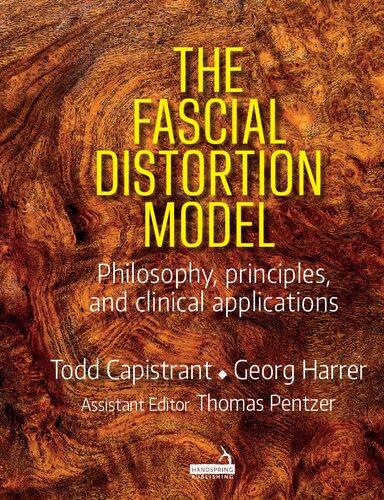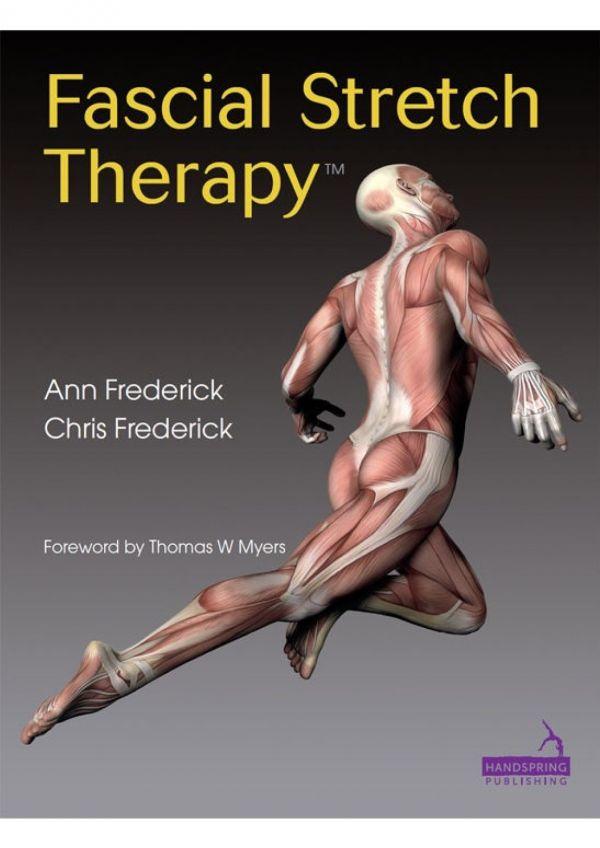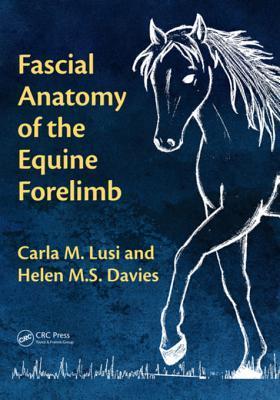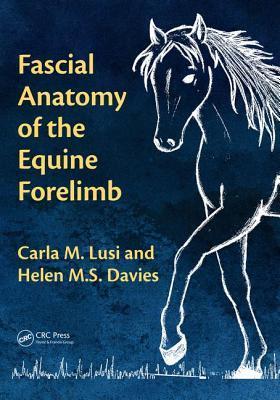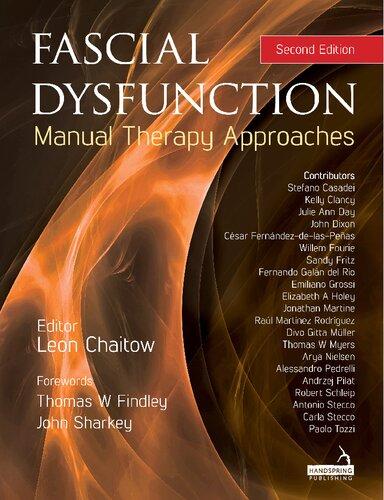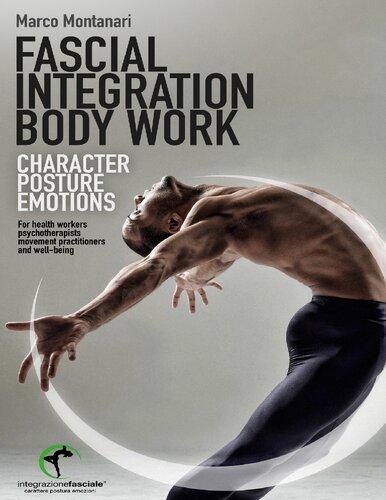Other documents randomly have different content
Arms may belong to individuals, to families, or to countries. Badges and emblems on shields and helms occurred in the earliest times. In Numbers, (chap. i: 52,) the children of Israel are enjoined to pitch their tents, "every man by his own camp and every man by his own standard," with the ensigns of his father's house. The Greek and Roman poets speak of paintings and devices on shields and helmets. These symbols were, moreover, hereditary. Thus Xenophon relates that the kings of the Medes bore a golden eagle on their shields. Suetonius asserts that Domitian had a golden beard for his coat of arms; and Tacitus says of the ancient Germans, that they marked their shields with brilliant colors, and that certain standards were borne before them in battle. Notwithstanding these traces of armorial bearings in the ancient world, our heraldry is no older than the tournaments. That armory first became common and regulated by certain rules at these solemn festivals, is corroborated by the following reasons. In the first place, we find no tomb or monument with escutcheons, older than the eleventh century. The most ancient monument of this kind is said to be the bearings of a certain Varmond, count of Vasserburg, in the church of St. Emmeran, at Ratisbon. The shield is coupé of argent and sable; over it is a lion, with the words "Anno Domini MX." On most of the other tombs, even of the eleventh century, no arms are found; and the use of them seems to have first become common in the twelfth century. The first pope who can be proved to have had a coat of arms, is Boniface VIII., who filled the papal see from 1294 to 1303. All the earlier papal arms are the fanciful inventions of later flatterers. On coins, also, no armorial ensigns are found till the thirteenth century. A second proof of our assumed origin of coats of arms is the word blason, which denotes the science of heraldry in French, English, Italian, and Spanish. This word has most probably its origin in the German word blasen, (to blow the horn;) for whenever a new knight appeared at a tournament, the herald had to sound the trumpet, and, because all appeared with close visors, to proclaim and explain the bearing of the shield or coat of arms belonging to each. Because this was performed by the herald, this knowledge was called heraldry; and because, in doing so, he blew the trumpet, it was
called blazoning the arms. That this was a prevailing practice at tournaments, may be proved from the poetry of the Troubadours of the twelfth and thirteenth centuries. Thence it came, that those knights, whose right to appear at tournaments had already been announced by blazoning their arms, bore two trumpets on their crest. From the Germans, this custom was transmitted to the French; for there is no doubt, that tournaments were usual in Germany much earlier than in France. But the French carried to far greater perfection the tournament, and the blazon or heraldry connected with it, as they did the whole system of chivalry. Since, moreover, the French language prevailed at the court of the Norman kings in England, pure French expressions have been preserved in British heraldry. Thus the green tincture, (color,) in a coat of arms, is termed vert, (though in French sinople, which originally denoted a reddish brown;) bright red is termed gueules, probably with an allusion to the bloody revenge of wild animals, which play so conspicuous a part in heraldry; the divided shield is, moreover, called coupé; and passant, regardant, dormant, couchant, &c., are used. German heraldry, on the contrary, contains almost pure German expressions. In a coat of arms, the helm is placed upon the shield, and the latter is surrounded by the wreath. At a tournament, the mantle of the knight, with the helm and shield, was suspended in the lists. The colors or tinctures of the shields had their foundation in the custom of the most ancient Germans, of giving their shields various colors—a custom which received a tender meaning in the tournaments of the middle ages; the knight, bound to defend the honor of dames, and devote himself to their protection, wearing their colors on his shield. By degrees, the partitions or sections on shields came into use; for when, as often occurred, a knight was the champion of several ladies, he bore several colors on his shield, which had therefore to be divided into fields. When the martial youth of almost all Europe left their homes, about the end of the eleventh century, inspired with religious enthusiasm, to conquer the Holy Land, the use of arms became still more general and necessary. In order to distinguish the nations, armies, and families, the princes and commanders chose their symbols, sometimes in commemoration
of the exploits and events of the campaign, or of the dignity of the commander, and sometimes from mere fancy or passing humor.
BLAZONING, HISTORIFYING, AND MARSHALLING ARMS.
Blazoning is the methodical description of a bearing. In the first place, the shield is described according to its tinctures, figures, and partitions. The inferior parts of an escutcheon are then blazoned— the helm, with its insignia, which are trumpet, wings, and plumes, men and animals, or their members; then the wreath and its tinctures; after which the coronet cap, &c.; finally the supporters, the mantle, the device, and other secondary things. Such terms for the color must be used as are agreeable to the station and quality of the bearer. All persons below the degree of noble must have their coats blazoned by colors and metals; noble men by precious stones; and kings and princes by planets.
In emblazoning shields of arms, metals, colors, and furs are used to depict the device, the technical terms of which are these;—of metals, gold, called or, and silver, argent, only are employed;—of colors, red, called gules, blue, azure, black, sable, green, vert, and purple, purpure;—and of furs, principally the skin of the little animal called ermine, and a combination of grey and white squirrel skins, called vair.
In blazoning arms it is an established rule with heralds, that animals are always to be interpreted in the best sense, that is, according to their most noble and generous qualities, that the most honor may redound to the bearers. Thus the fox, being reputed witty and given to filching for his prey, if this be the charge of an escutcheon, we are to conceive the quality represented to be his wit and cunning, and not his theft.
All savage beasts are to be figured in their fiercest action: as a lion erected, his mouth wide open, his claws extended; and thus formed he is said to be rampant. A leopard or wolf is to be portrayed going as it were pedetentim, which form of action suits their natural disposition, and is called passant. The gentler kinds are to be set
forth in their noblest and most advantageous action, as a horse running or vaulting, a greyhound coursing, a deer tripping, a lamb going with smooth and easy pace.
Every animal is to be represented as moving or looking to the right side of the shield; and it is a general rule, that the right foot be placed foremost, because the right side is reckoned the beginning of motion. The upper part is nobler than the lower, and things that are constrained either to look up or down, ought rather to be designed looking upwards. We observe however that notwithstanding such precepts of Guillim and other masters of armory, there are lions passant, couchant, dormant, as well as rampant, and most animals in arms look down and not up. Birds are esteemed a more honorable bearing than fish, and wild and ravenous birds than tame ones. When their bills and feet are of a different color from the rest, they are said to be membered. Birds of prey are more properly said to be armed. In the blazoning of fowls much exercised in flight, if the wings be not displayed, they are said to be borne close, for example, he beareth an eagle, a hawk, or a swallow, close. Fish are borne different ways, upright, embowed, extended, endorsed, surmounted of each other, fretted, triangled. Those borne feeding should be termed devouring. Those borne directly upright are termed Hauriant, and those borne traverse the escutcheon, naiant.
To historify, in heraldry, is to explain the history of a coat of arms, its origin, and the changes it has undergone. If the herald is to explain a bearing historically, he must show that this figure is the proper emblem of the family or country. He derives, for instance, from historical sources, the proof that the double-headed eagle of the Roman king was first introduced in the beginning of the fourteenth century, under Albert I., and that previously, from the time of Otho II., the royal eagle had but one head; that the three leopards in the English arms were first derived in 1127, under Henry I., from the Norman house.—The marshalling of arms consists in the preparation of new escutcheons. In this matter, the herald either follows the orders of a sovereign, or he invents the idea, and makes
the plan of the escutcheon according to his own judgment, or he composes a new escutcheon from several coats of arms.
DIFFERENT KINDS OF ARMS.
In heraldic science, arms are distinguished by different names, to denote the causes of their being borne, such as arms of dominion, of pretension, of concession, of community, of patronage, of family, of alliance, of succession, and of assumption. Those of dominionand sovereignty are those which emperors, kings, and sovereign states constantly bear, being, as it were, annexed to the territories, kingdoms, and provinces they possess. Thus there are the arms of England, of France, of the United States, &c. Arms of pretensionare those of kingdoms, provinces, or territories, to which a prince or lord has some claim, and which he adds to his own, although such kingdoms or territories are possessed by another prince or lord. Arms of concession, or augmentation of honor, are entire arms, as the fortress of Gibraltar on the escutcheon of Lord Heathfield. Arms of community belong to bishoprics, cities, companies, &c. Arms of patronage, to governors of provinces, lords of manors, &c. Arms of family are the property of individuals; and it is criminal in any persons not of the family to assume them. Arms of allianceshow the union of families and individuals. Arms of succession are taken up, by those who inherit certain estates, manors, &c., either by will, entail, or donation, and which they impale or quarter with their own. This multiplies the titles of some families from necessity, and not from ostentation. Arms of assumption, or assumptive arms, are taken up by the caprice or fancy of persons who assume them without a legal title. They are also such as a man of his proper right may assume, with the approbation of his sovereign and of the king of arms.
PARTS OF A COAT OF ARMS.
The parts of arms are the escutcheon, the tinctures, charges, and ornaments. Heralds distinguish nine different points in escutcheons,
in order to determine exactly the positions of the bearing they are charged with, as in the figure.
A, dexter chief; B, precise middle chief; C, sinister chief; D, honor point; E, fess point; F, nombril point; G, dexter base; H, precise middle base; I, sinister base. The tinctures mean the variable hue common both to the shields and their bearings; and there are seven tinctures—yellow or gold, expressed by dots; white or argent; red, by perpendicular lines; blue or azure, by horizontal lines; purple, by diagonal lines from right to left; green, by the same from left to right; black by horizontal and perpendicular lines crossing; and orange and blood colors are expressed by diagonal lines crossing each other. The charges are the emblems occupying the field of the escutcheon, or any part of it. All charges are distinguished by the name of honorable ordinaries, sub-ordinaries, and common charges. Honorable ordinaries, the principal charges in heraldry, are made of lines only, which, according to their disposition and form, receive different names. Sub-ordinaries are ancient heraldic figures frequently used in coats of arms, and which are distinguished by terms appropriated to each of them. Common charges are composed of natural, artificial, and even imaginary things, such as stars, animals, trees, ships, &c. The ornaments that accompany or surround escutcheons were introduced to denote the birth, dignity, or office of the person to whom the arms appertain. They are used both by clergy and laity. Those most in use are of ten sorts; namely, crowns, coronets, mitres, helmets, mantlings, chapeaux, wreaths, crests, scrolls, and supporters. The crest is the highest part of the ornaments of a coat of arms. It is called crest from the Latin word crista, which signifies a comb or tuft, such as many birds have upon their heads, as the peacock, &c. Crests were anciently marks of great honor, because they were worn only by heroes of great valor and high rank, that they might be the better distinguished in an engagement, and thereby rally their men if dispersed. They are at present considered as mere ornaments. The scroll is an ornament
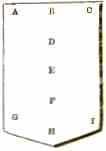
usually placed below the shield and supporters, containing a motto or sentence, alluding to the bearing or to the bearer's name.
Explanation ofthe Plate on the followingpage, taken from Brande's Dictionary ofScience, Literature, andArt.
I. LINES.
1. Horizontal or straight. 2. Angled. 3. Bevelled. 4. Escartele. 5. Nowy or Franche. 6. Arched or enarched. 7. Double arched. 8. Wavy or undee. 9. Invected. 10. Engrailed. 11. Battled-embattled, or crenellee. 12. Battledembattled. 13. Nebuly. 14. Potent. 15. Indented. 16. Dancettec. 17. Dovetailed. 18. Urdee. 19. Rayonnee, or radiant.
II. POINTS OF THE ESCUTCHEON, COLORS, AND FURS.
20. Escutcheon, points of. 21. Or. 22. Argent. 23. Gules. 24. Azure. 25. Sable. 26. Vert. 27. Purpure. 28. Tenne. 29. Sanguine. 30. Ermine. 31. Ermines. 32. Erminois. 33. Peau. 34. Vair. 35. Varry cuppy.
III. DIFFERENCES, OR FILIATIONS.
36. (First son) Label of three points. 37. (Second) Crescent. 38. (Third) Mullet. 39. (Fourth) Martlet. 40. (Fifth) Annulet. 41. (Sixth) Fleur-de-lis.
IV. ORDINARIES, &C.
42. Chief. 43. Pale (between two annulets.) 44. Pallet. 45. Party per pale. 46. Border. 47. Bars. 48. Fess. 49. Bend. 50. Bend sinister. 51. Border. 52. Chevron. 53. Cross. 54. Cross of St. John of Jerusalem, or Malta. 55. Cross patonce. 56. Cross moline. 57. Cross of St. Andrew. 58. Crosses humettee. 59. Cross moline in saltier. 60. Cross bottonee or trefoil. 61. Cross crosslet, fitchee. 62. Cross flory. 63. Cross mascle. 64. Cross fitchee. 65. Lozenge, fleury.
V. MISCELLANEOUS BEARINGS.
66. Lion, statant guardant. 67. Passant. 68. Passant guardant. 69. Rampant. 70. Rampant guardant. 71. Rampant reguardant. 72. Sejant. 73. Couchant. 74. Stag at gaze. 75. Stag's head caboshed. 76. Tiger, heraldic. 77. Dragon. 78. Griffin. 79. Dragon's head erased. 80. Wivern. 81. Eagle displayed, with two heads. 82. Boar's head erased. 83. Water budgets. 84. Snake, bowed debruised. 85. Quatrefoil. 86. Trefoils. 87. Fleur-de-lis. 88. Clarion, or rest. 89. Mullets.
VI. CROWNS, CORONETS, &C.
90. Crown of England. 91. Coronet of the Prince of Wales. 92. Coronet of a duke. 93. Marquis. 94. Earl. 95. Viscount. 96. Baron. 97. Mitre of a bishop. 98. Eastern, or antique coronet. 99. Celestial crown. 100. Crown of Edward I. 101. Mortier, or cap of state. 102. Chapeau, or cap of maintenance. 103. Crown of France. 104. Cardinal's hat. 105. Crown triple, or tiara of the pope.
[back]
RATIFICATION OF THE FEDERAL CONSTITUTION BY MASSACHUSETTS.
[The following account of the Ratification of the Constitution of the United States by the Convention of the Commonwealth of Massachusetts convened at Boston on the 9th day of January, 1788, and continued until the 7th of February, was printed in the Massachusetts Gazette of Feb. 8th, 1788, published by John Wincoll Allen of Boston. It is here inserted as a historical document of those times that tried men's souls, which will, we think, be read with deep interest by those of the present generation. In this way, too, it will be preserved, as it should be, for posterity. It is printed as we find it in the Gazette, with only the addition of the names of the towns, in which the individuals of the Convention resided. Of the Convention, John Hancock was President, William Cushing, Vice-President, and George Richards Minot, Secretary.]
With the highest satisfaction we announce to the publick, that the Convention of this commonwealth, on Wednesday last, at five o'clock, P. M. ASSENTED TO the CONSTITUTION, proposed by the late federal Convention. On this pleasing event, WE DO HEARTILY congratulate the publick, and do express our sincere wishes, that the general joy which it has diffused through all ranks of citizens, may be an auspicious omen of the superiour advantages which will undoubtedly result from the establishment of such a federal government as this constitution provides.
Immediately on the news of this joyful decision being announced, the bells in every publick building in this metropolis began to ring, and continued to sound the glad tydings for two hours. At sun set the Convention adjourned: after which, a multitude of people, from all quarters, moved into State-Street, where they manifested the joy they felt from this event, by incessant tokens of approbation, and loud huzzas. The bells of the North church continued to chime harmonious peals of gratulations the whole night, and part of the next day. Illuminations were made and other insignia of joy exhibited.
The yeas and nays, on the question of adoption, being taken, agreeably to the orders of the day, were as follows, viz.
YEAS.
His Excellency JOHN HANCOCK, Esq. President, Hon. James Bowdoin, hon. Sam. Adams, hon. William Phillips, hon. Caleb Davis, Charles Jarvis, esq. John C. Jones, esq. John Winthrop, esq. Thomas Dawes, jun. esq. rev. Samuel Stillman, Thomas Russell, esq. Christopher Gore, esq. Boston, hon. William Heath, hon. Increase Sumner, Roxbury, James Bowdoin, jun. esq. Ebenezer Wales, esq. Dorchester, rev. Nathaniel Robbins, Milton, hon. Richard Cranch, rev. Anthony Wibird, Braintree, hon. Cotton Tufts, Weymouth, hon. Benjamin Lincoln, rev. David Shute, Hingham, rev. Joseph Jackson, Brookline, rev. Thomas Thacher, Fisher Ames, esq. Dedham, col. William M'Intosh, Needham, capt. John Baxter, jun. Medfield, hon. Elijah Dunbar, esq. Stoughton, mr. Thomas Mann, Wrentham, mr. George Payson, Walpole, hon. J. Fisher, Franklin, mr. Thomas Jones, Hull, rev. Phillips Payson, Chelsea, mr. Ebenezer Warren, Foxborough, Richard Manning, esq. Edward Pulling, esq. mr. William Gray, jun. mr. Francis Cabot, Salem, hon. Michael Farley, J. Choate, esq. Daniel Noyes, esq. col. Jonathan Cogswell, Ipswich, hon. Tristram Dalton, Enoch Sawyer, esq. E. March, esq. Newbury, hon. Rufus King, esq. hon. Benjamin Greenleaf, esq. Theophilus Parsons, esq. hon. Jonathan Titcomb, Newburyport, hon. G. Cabot, mr. Joseph Wood, capt. Israel Thorndike, Beverly, Isaac Mansfield, esq. Jonathan Glover, esq. hon. Azor Orne, John Glover, esq. Marblehead, Daniel Rogers, esq. John Low, esq. capt. W. Pearson, Gloucester, John Carnes, esq. capt. John Burnham, Lynn and Lynnfield, mr. William Symmes, jun. Andover, Bailey Bartlett, esq. capt. Nathaniel Marsh, Haverhill, mr. Israel Clark, Topsfield, dr. Samuel Nye, mr. Enoch Jackman, Salisbury, capt. Benjamin Lurvey, mr. Willis Patten, Amesbury, Daniel Thurston, esq. Bradford, mr. Jacob Herrick, Wenham, mr. Simeon Miller, Manchester, hon. Francis Dana, esq. Stephen Dana, esq. Cambridge, hon. Nathaniel Gorham, esq. Charlestown, hon. Joseph Hosmer, Concord, hon. Abraham Fuller, Newtown, capt. Lawson Buckminster, Framingham, Benjamin Brown, esq. Lexington, Daniel Whitney, esq. Sherburne, capt. Asahel Wheeler, Sudbury, capt. Benjamin Blaney, Malden, capt. Abraham Bigelow, Weston, maj. gen. John Brooks, Medford, dr. Charles Whitman, Stow, Leonard Williams, esq. Waltham, hon. J. B. Varnum, Dracut, hon. J. Pitts, Dunstable, hon. E. Brooks, Lincoln, W. Pynchon, esq. Springfield, hon. C. Strong, mr. Benjamin Sheldon, Northampton and Easthampton, capt. Lemuel Pomeroy, Southampton, brig. gen. Elisha Porter, Hadley, hon. Noah Goodman, South Hadley, hon. J. Hastings, Hatfield, John Ingersol, esq. Westfield, mr. Ebenezer James, Northfield, Abner Morgan, esq. Brimfield, capt. David Shepard, Chester, mr. Jesse Reed, Charlemont, Nahum Eager, esq. Worthington, col. Benjamin Bonney, Chesterfield, major Thomas J. Douglass, Northwick, mr. Aaron Fisher, Westhampton, mr. Edmund Lazell, Cummington and Plainfield, capt. Thomas Maxwell, Buckland, mr. Elihu
Colton, Longmeadow, Joshua Thomas, esq. mr. Thomas Davis, mr. John Davis, Plymouth, hon. William Cushing, hon. Nathan Cushing, hon. Charles Turner, Scituate, hon. George Partridge, Duxbury, rev. William Shaw, Marshfield, Daniel Howard, esq. mr. Hezekiah Hooper, capt. Elisha Mitchel, mr. Daniel Howard, jun. Bridgewater, rev. Isaac Backus, Isaac Thompson, esq. Middleboro', capt. John Turner, mr. Josiah Smith, Pembroke, William Sever, jun. esq. Kingston, hon. Joseph Cushing, Hanover, rev. Samuel Niles, Abington, mr. Freeman Waterman, Halifax, col. Israel Fearing, Wareham, Shearjashaub Bourn, esq. Barnstable, David Thacher, esq. capt. Jonathan Howes, Yarmouth, hon. Solomon Freeman, capt. Kimball Clark, Harwich, rev. Levi Whitman, Wellfleet, capt. Joseph Palmer, Falmouth, James Williams, esq. Taunton, hon. Elisha May, capt. Moses Willmarth, Attleboro', col. Sylvester Richmond, hon. William Baylies, Dighton, hon. Thomas Durfee, Israel Washburne, esq. Freetown, hon. Walter Spooner, rev. Samuel West, New Bedford, mr. William Almy, Westport, Nathaniel Barrel, esq. York, rev. Moses Hemmenway, hon. Nathaniel Wells, Wells, Thomas Cutts, esq. Pepperelboro', Jacob Bradbury, esq. Buxton, capt. John Low, Coxhall, mr. William Mayhew, Edgartown, mr. Cornelius Dunham, Tisbury, hon. John Sprague, Lancaster, capt. Seth Newton, Southboro', hon. Samuel Baker, Bolton, major David Wilder, Leominster, mr. Matthew Patrick, Western, mr. Josiah Goddard, Athol, capt. Ephraim Wilder, Sterling, John K. Smith, esq. Falmouth, mr. John Fox, capt. Joseph M'Lellan, Portland, David Mitchell, esq. Samuel Merrill, esq. North Yarmouth, William Thompson, esq. Scarboro', capt. John Dunlap, Brunswick, capt. Isaac Snow, Harpswell, mr. Joshua Dyer, Cape Elisabeth, rev. Samuel Perley, Gray, Thomas Rice, esq. mr. David Sylvester, Pownalboro', mr. Nathaniel Wyman, Georgetown, mr. David Gilmore, Woolwich, William M'Cobb, esq. Boothbay, capt. Samuel Grant, Vassalboro', Moses Davis, esq. Edgecomb, David Fales, esq. Thomaston, Dummer Sewall, esq. Bath, John Ashley, jun. esq. Sheffield and Mount Washington, hon. Elijah Dwight, Great Barrington, hon. T. Sedgwick, Stockbridge, hon. Jonathan Smith, Lanesboro', hon. T. J. Skinner, Williamstown, mr. Elisha Carpenter, Becket, capt. D. Taylor, New Marlboro'. TOTAL Yeas 187.
NAYS.
Capt. Jedediah Southworth, Stoughton, mr. Nathan Comstock, Wrentham, mr. Benjamin Randall, Sharon, mr. M. Richardson, jun. Medway, rev. Noah Alden, Bellingham, hon. Israel Hutchinson, Danvers, capt. Peter Osgood, jun. dr. Thomas Kittredge, Andover, capt. Thomas Mighill, Rowley, hon. A. Wood, Boxford, capt. Ebenezer Carlton, Methuen, dr. Marshall Spring, Watertown, capt. Timothy Winn, Woburn, mr. William Flint, mr. Peter Emerson, Reading, mr. Jonas Morse, major Benjamin Sawin, Marlboro', William Thompson, esq. Billerica, col. Benjamin Ely, capt. John Williston, West Springfield, capt.
Phinehas Stebbins, Wilbraham, Mr. Daniel Cooley, Amherst, Mr. Benjamin Eastman, Granby, Mr. Josiah Allis, Whately, mr. William Bodman, Williamsburg, mr. Samuel Field, Deerfield, mr. Moses Bascom, Greenfield, mr. Robert Wilson, Shelburne, capt. Consider Arms, mr. Malachi Maynard, Conway, capt. Zacheus Crocker, Sunderland, mr. Moses Severance, Montague, capt. Asa Fisk, South Brimfield, mr. Phinehas Merrick, Monson, mr. Adam Clark, Pelham, capt. Nathaniel Whitcomb, Greenwich, mr. Timothy Blair, Blanford, mr. Aaron Mirrick, Palmer, mr. John Hamilton, Mr. Clark Cooley, Granville, mr. John Chamberlain, New Salem, mr. Justus Dwight, Belchertown, mr. Samuel Eddy, Colrain, mr. Isaac Pepper, Ware, capt. John Goldsbury, Warwickand Orange, capt. Agrippa Wells, Bernardston, mr. Ephraim Williams, Ashfield, mr. Asa Powers, Shutesbury, capt. Silas Fowler, Southwick, mr. John Jennings, Ludlow, mr. Jonathan Hubbard, Leverett, mr. Benjamin Thomas, mr. Isaac Soul, Middleboro', mr. Nathaniel Hammond, mr. Abraham Holmes, Rochester, capt. Francis Shurtliff, mr. Elisha Bisbee, jun. Plympton, dr. Thomas Smith, mr. Thomas Nye, Sandwich, col. Nathaniel Leonard, mr. Aaron Pratt, Taunton, capt. Phanuel Bishop, major Frederick Drown, William Windsor, esq. Rehoboth, mr. Christopher Mason, mr. David Brown, Swansey, hon. Holder Slocum, mr. Melatiah Hathway, Dartmouth, hon. Abraham White, Norton, capt. Ebenezer Tisdell, Easton, capt. John Pratt, Mansfield, capt. Esaias Preble, York, mr. Mark Adams, mr. James Neal, Kittery, capt. Elijah Thayer, dr. Nathaniel Low, mr. Richard Foxwell Cutts, Berwick, mr. Thomas M. Wentworth, Lebanon, major Samuel Nasson, Sanford, mr. Moses Ames, Fryeburg, Mr. Jeremiah Emery, Shapleigh, rev. Pelatiah Tingley, Waterboro', mr. David Bigelow, Worcester, Edward Thompson, esq. Mendon, major John Minot, Chelmsford, capt. Gilbert Dench, Hopkinton, mr. Jonathan Keep, Westford, dr. Benjamin Morse, Joseph Sheple, esq. Groton, mr. Obadiah Sawtell, Shirley, mr. Daniel Fisk, Pepperell, capt. Daniel Adams, Townsend, capt. John Webber, Bedford, capt. Sta. Chamberlain, Holliston, mr. Asa Parlin, Acton and Carlisle, capt. J. Harnden, Wilmington, mr. Newman Scarlet, Tewksbury, mr. Samuel Reed, Littleton, mr. Benjamin Adams, Ashby, major Hezekiah Bread, Natick, capt. Jonathan Green, Stoneham, mr. Phinehas Gleason, East Sudbury, mr. Daniel Forbes, mr. N. Jenks, Brookfield, capt. Jeremiah Learned, Oxford, mr. Caleb Curtis, Mr. Ezra M'Intier, Charlton, mr. David Harwood, hon. Amos Singletary, Sutton, col. Samuel Denny, Leicester, mr. James Hathua, Spencer, mr. Asaph Shermon, Rutland, mr. Abraham Smith, Paxton, capt. Jonathan Bullard, Oakham, capt. John Black, Barre, capt. John Woods, Hubbardston, capt. Benjamin Joslyn, New Braintree, capt. Stephen Maynard, Westboro', mr. Artemas Brigham, Northboro', capt. Isaac Harrington, Shrewsbury, capt. John Fuller, Lunenburg, mr. Daniel Putnam, Fitchburg, dr. Samuel Willard, Uxbridge, Josiah Whitney, esq. Harvard, mr. Jonathan Day, Dudley, capt. Thomas M. Baker, Upton, capt. Timothy Parker, Sturbridge, major Martin Kingsley, Hardwick, rev. Joseph Davis, Holden, hon.
John Taylor, Douglass, dr. Joseph Wood, Grafton, Jonathan Grant, esq. capt. Samuel Peckham, Petersham, John Frye, esq. Royalston, mr. Stephen Holden, Westminster, capt. Joel Fletcher, Templeton, mr. Timothy Fuller, Princeton, mr. Jacob Willard, Ashburnham, mr. Moses Hale, Winchendon, capt. Josiah Wood, Northbridge, mr. Joseph Stone, Ward, mr. David Stearns, Milford, mr. Jonas Temple, Boylston, Daniel Ilsley, esq. Falmouth, mr. S. Longfellow, jun. Gorham, William Widgery, New Gloucester, capt. David Murry, New Castle, hon. Samuel Thompson, Topsham, mr. Jonah Crosby, Winslow, mr. Zacheus Beal, Bowdoinham, William Jones, esq. Bristol, capt. James Carr, Hallowell, mr. Joshua Bean, Winthrop, mr. Valentine Rathbun, Pittsfield, mr. Comstock Betts, Richmond, mr. Lemuel Collins, Lenox, capt. Jeremiah Pierce, Adams, Ephraim Fitch, esq. Egremont, major Thomas Lusk, West Stockbridge, mr. John Hurlbert, Alford, capt. Ezekiel Herrick, Tyrningham, mr. Joshua Lawton, Loudon, mr. Timothy Mason, Windsor, Ebenezer Pierce, esq. Partridgefield, mr. David Vaughan, Hancock, capt. Jesse Bradley, Lee, mr. Zenas Noble, Washington, mr. John Picket, jun. Sandisfield. TOTAL Nays 168.
The open, manly and honourable conduct of the gentlemen who composed the minority, in the great question on Wednesday, taken in the honourable convention, was very different from the turbulent opposers of the constitution in Pennsylvania, who, not content with their declamatory and odious protest against its adoption, are now endeavouring to involve their country in all the horrours of a civil war, by exciting tumult and insurrection. On the vote of adoption being declared,
Honourable mr. WHITE rose, and said, that notwithstanding he had opposed the adoption of the constitution, upon the idea that it would endanger the liberties of his country, yet, as a majority had seen fit to adopt it, he should use his utmost exertions to induce his constituents to live in peace under, and cheerfully submit to it.
He was followed by mr. WIDGERY, who said, that he should return to his constituents, and inform them, that he had opposed the adoption of this constitution, but that he had been overruled, and that he had been carried by a majority of wise and understanding men: that he should endeavour to sow the seeds of union and peace among the people he represented—and that he hoped, and believed, that no person would wish for, or suggest the measure of a PROTEST; for, said he, we must consider that this body is as full a
representation of the people, as can be conceived.—— After expressing his thanks for the civility which the inhabitants of this town have shewn to the convention, and declaring, as his opinion, that they had not in the least influenced the decision; he concluded by saying he should support, as much as in him lay, the constitution, and believed, as this state had adopted it, not only 9, but the whole 13, would come into the measure.
General WHITNEY said, that though he had been opposed to the constitution, he should support it as much as if he had voted for it.
Mr. COOLEY, (Amherst) said, that he endeavoured to govern himself by the principles of reason, that he was directed to vote against the adoption of the constitution, and that in so doing, he had not only complied with his direction, but had acted according to the dictates of his own conscience; but that as it has been agreed to by a majority, he should endeavour to convince his constituents of the propriety of its adoption.
Doctor TAYLOR, also said, he had uniformly opposed the constitution, that he found himself fairly beat, and expressed his determination to go home, and endeavour to infuse a spirit of harmony and love, among the people.
Other gentlemen expressed their inclination to speak, but it growing late, the convention adjourned to Thursday morning, at ten o'clock.
Letthisbetoldtothehonour ofMassachusetts;tothereputation of her citizens, as men willing to acquiesce in that republican principle,ofsubmittingtothedecisionofamajority.
Yesterday, A. M. the Convention met, according to adjournment, when a vote was passed for proceeding in procession to the statehouse, and there to declare the ratification of the FEDERAL CONSTITUTION, which that honourable body, on Wednesday last, by a majority of NINETEEN assented to, in behalf of the commonwealth of Massachusetts. About 12 o'clock, the procession moved from their place of session, preceded by the honourable vice-president of the
Convention. His excellency the president being seated in an elegant vehicle, was drawn by THIRTEEN patriotick and publick spirited MECHANICKS, who thus expressed their love and respect for a man who ever loved and respected his country.
The procession having arrived at the state-house, entered the senate-chamber, from which his excellency the president, the vicepresident, secretary, high-sheriff of the county of Suffolk, and other respectable characters, went out upon the balcony of the statehouse, from whence his excellency the president addressed the multitude who had assembled below, in a short speech, preparatory to what they were about to hear declared. The high-sheriff then declared the federal constitution adopted and ratified by the Convention of the commonwealth of Massachusetts.
After which the whole assembly testified their approbation by the loudest huzzas.
An elegant repast being provided for the occasion in the senatechamber, the Convention, and a great number of other gentlemen, partook thereof, and exhibited such marks of satisfaction, as fully evinced, that this joyful event would tend to give vigour and energy to our future continental administrations. After dinner the following toasts were drank, viz.
1. His excellency the president and convention of Massachusetts.
2. The president and members of the late continental convention.
3. The states that have adopted the federal constitution.
4. A speedy accession to the union by those states who are yet to deliberate upon the proposed constitution.
5. May the same candour, and liberality, which has so conspicuously distinguished the minority of Massachusetts, prevail thro' every state in the union.
6. May the United States of America be as distinguished for their increase in agriculture, arts and manufactures, as they are for their attachment to justice and the liberties of mankind.
7. The great and magnanimous ally of the United States of America—his most Christian majesty.
8. The United Netherlands.
9. May the States of America be the asylum of every distressed son of liberty, throughout the world.
10. May the flag of American commerce be displayed in every quarter of the globe.
11. May the landholders of America soon experience the happy effects intended by the proposed constitution.
12. May the nations of the world, who would be our rivals in trade, soon find their disappointment in the energy of our councils.
13. May peace, liberty, and safety, be the perpetual birthright of an American.
It seems that the joy which the adoption of the proposed constitution has diffused, is not only general, but sincere and grateful. The rising sun of yesterday's morn, by its brightness and refulgent beams, seemed to break forth, from the dusky horizon, with uncommon grandeur, partaking, as it were, of the joy in which an event so propitious immersed the souls of the people. The bells of all the churches, &c. in town, began ringing at early dawn, and continued, most of them without intermission, thro' the day, and part of last evening.
The hardy sons of Neptune, seemed not to be insensible of the importance of this great event; for having procured a boat, which they fixed on a sled, they continued to draw it through the town till near the close of the day, frequently huzzaing, and loudly exulting in the anticipation of reviving and flourishing commerce. In the boat was displayed the flag of the United States, and musick, which kept continually playing.
In a cart, drawn by five horses, the British flag was displayed, and insulted by numbers placed in the cart, armed with muskets, who repeatedly discharged the contents of them through the tattered
remnant, in contempt of that faithless nation, whose exertions have been unremitted since the peace, to cramp our commerce and obstruct all our nautical proceedings.
Repeated marks of joy were exhibited during the course of the day by the lovers and well wishers of our country, but we believe none will exceed the exhibition which is to take place this day, as will appear by the following
NOTICE
TO T H E T R A D E S M E N .
THE COMMITTEE of MECHANICKS appointed at their meeting the 7th. ult. present their compliments to the several TRADESMEN, MECHANICKS, and ARTIZANS of every description in the town of Boston, and request their attendance at Faneuil Hall, this morning, at NINE o'clock, in order to form and proceed in GRAND PROCESSION therefrom, to testify their approbation of the ratification of the Federal Constitution, by the Convention of this commonwealth the 6th instant.
They recommend that the procession be formed as follows—First, a plough, drawn by a horse, with husbandmen carrying proper utensils—Then the tradesmen, &c. of the town, each with some tool, decorated; to proceed by trades; each trade with one person at its head. With the ship-builders, &c. will be a boat, drawn by horses, properly manned. They request that the procession may be as full as possible; that the several drummers, fifers, and other musicians in the town, will join the procession, with their instruments.
The rout of the procession will be mentioned at the Hall.
Boston, February 7, 1788.
LETTER OF CHIEF-JUSTICE SARGEANT OF MASSACHUSETTS.
[The following are extracts from a letter of Judge Sargeant to the Hon. Joseph Badger of Gilmanton, N. H., who was a Delegate to the Convention of that state for the adoption of the Federal Constitution.]
I make no doubt but you have carefully compared ye old confederation with ye new constitution and I wish you to review them again. Can there be such a thing as Government without Power? What is advice, recommendation, or requisition? It is not Government. Congress has a right to raise an army, to make war and Peace, of entering into Treaties and alliances to borrow money and appropriate ye same to ascertain ye sums necessary to be raised for ye Service of ye United States—to emit bills of credit to build and equip a navy, and to make requisitions on ye states for their quota of men, to Cloath, arm and equip them. But who will lend Congress Money when they have not Power to raise a Single Shilling to repay them? Who will take their bills of Credit when every Body knows they can never redeem them? Who will enlist into their army when Congress has no money to pay them a Bounty or their wages or find them in Provisions? Who will build and equip a navy for them without money? Who will trouble themselves about Congress' making war or Peace when they can't command a Shilling to support a war? To what Purpose is it to appropriate money when they can't get it? What end does it answer for other nations to make treaties and alliances with Congress when any one State by its obstinacy, fraud or some Paltry private interest may defeat ye treaty or by main force break through it?
What good end will be answered by ascertaining ye Sums necessary to be raised when thirteen independent Legislatures are to judge whether those sums are necessary or not and whether they will raise them or not and if one State won't raise their quota, ye other states are more than foolish, they are distracted if they raise theirs. What effect will a requisition on ye states for raising, cloathing, arming, and equipping their quotas of men have, when ye 13 Legislatures are left to judge of ye expediency, or necessity of this equipment, whether they are not charged above their proportion whether it won't do as well sometime hence? What security is it possible to have under such a Government? A Government without energy, without power. Zeal and enthusiasm carried us thro' ye last war without any Government till March 1781, when ye Confederation was compleated and then we hobbled along 21
months longer under it until peace took place, and since ye Peace, Requisitions from Congress have had no more effect than ye Pope's bulls wou'd have had. The old Confederation is just ye same to ye United States as a people, as a milk and water diet wou'd be to a labouring man, both wou'd grow weaker and weaker till they were not able to crawl. Nothing ever gave us any respectability abroad but ye readiness and chearfulness with which we complied with all ye recommendations of Congress when we had no Government at all. That enabled us to form treaties with other nations, to hire money, and their hatred to Great Britain engaged them to join in ye war against her. The nations in Europe discovered this weakness long before we did. Great Britain for 5 years has refused to make any Treaty of commerce with us, has shut all her Ports against our shipping, while our Ports are filled with their shipping and seamen and are picking up our seamen for their employ they bring their Produce and manufactures to us to buy but won't let us carry our own to them. They have embarrass'd our commerce with other nations by setting ye Algerines upon our shipping and thereby obliged us to give 5 per Cent. to them for insurance against the Algerines all this while we have not had ye power to retalliate upon them in one Single Article. The other Powers viz: France, Holland, Spain and Portugal have now taken ye hint and are imposing duties upon our Produce and Manufactures to ye great encouragement of their own and discouragement of ours, and we can't make any Regulations to counterwork them. Massachusetts some years ago took ye lead and made some very advantageous Regulations. New Hampshire followed, and Rhode Island adopted a small part. Soon ye People in New Hampshire grew restive and obliged ye Government to repeal ye same. Rhode Island followed and Massachusetts was obliged to follow them, so that you see what a rope of sand we are. This conduct of ye European nations will in time, if it produces good Government, prove of eminent advantage to us. They drained us of almost all our Cash. This put People upon being industrious and frugal. Industry has occasioned great improvements in agriculture and in manufactures. The first has rendered Provisions plenty and so cheap that we sell them to almost all nations. The latter has supplied us with many necessaries which we used to send cash for, and we remitted to other nations pay for what necessaries we wanted. Frugality has prevented us from sending our Cash abroad for many Superfluities which we can do as well or perhaps better without; so that now it is an undoubted fact that ye exports from America greatly exceed ye imports; consequently Cash may now become as plenty as it wou'd be best it shou'd be.
The old Confederation without Power or Energy destroyed ye Credit of ye United States. The scarcity of Cash, and ye embarrassments of ye Government, for want of some fixed System of finance has destroyed ye credit of ye individual States different Tender acts in different States, different sorts of paper money in different States, (for almost all ye States have either paper money or tender acts,) have destroyed private Credit; so that we are now as a people and as individuals totally without either public or private Credit. Under these circumstances money never can circulate in plenty, let ye advantages for importing it be what they may—
Is it now possible for a Government, under these disadvantages, whether it be continental or particular, to support itself any length of time? Will not private industry be discouraged? Can such a Government protect ye industrious from ye hands of invaders or ye more savage hands of violence among ourselves? Anarchy will soon rear its head and ye Tyranny of some ambitious Demagogue will soon tread on its heels. Suppose for a moment ye General Court of New Hampshire or Massachusetts were to agree that such a sum of money was necessary to be raised for ye building and maintaining of a colledge for supporting schools in different Parts, for supporting ministers, for encouraging ye Iron manufactory, ye manufactory of cloath, for repairing ye highways, for training and disciplining ye militia, and procuring a stock of guns and ammunition and building forts for ye defence of ye State and then send a recommendation to ye several towns desiring them to raise their quota of that sum, being so much.
Wou'd not this be a laughable way of raising money for ye public exigences? One town wou'd say there was no need of building a Colledge; others wou'd say there is no need of Schools or ministers; let them that work Iron and cloath get their own pay; our highways will do well enough without repairs; ye militia are good gunners already, there is no need of forts, and there is no war at hand, and we can do without Guns and ammunition a little longer; besides all they have rated our town too high. Wou'd not this be ye common language? A precious little money wou'd be raised, I trow. Let me ask, if ye People in our town meetings are competent Judges of ye necessity and advantage of raising money for these purposes? You will instantly answer me, no not one in six. Can they have large and extensive views of ye interest, of ye essential and important interests of ye whole state? No, perhaps, not one, thô many of them when they had met with other persons from all parts of ye state, and had freely conversed with them might be good Judges
afterwards. How absurd and impolitic then is it to trust ye great affairs and interests of a continent, 1500 miles long and 1000 miles wide to ye determination of 2600 men deputed from some little spots of 6 miles square ye greatest part of whom never went further than ye next market town perhaps, or at ye outside to ye shire town of ye state and never expects to go again after his year is up, or if he does, it is only to get his 3s. 6d. a day without labour or at ye most to have ye honour of saving a small Tax upon his own town and these men are not to meet altogether where they might, if disposed, get ye necessary information to form a Judgment by,—but in thirteen different places where they have different interests, different leaders and different information. How much more ridiculous is it then, that all these men are to determine of ye necessity of Peace or War of ye sums of Money necessary to be raised, of ye best and easiest mode of raising it thro' all ye states, regulating ye value of money thro' all ye states, of defining and punishing Piracies and felonies on ye high seas and of Offences against ye law of nations when it is necessary and proper to grant Letters of Marque and reprisal what are ye rights and duties of Ambassadors, Consuls and public ministers, what are proper rules respecting captures where other nations are concerned with us in ye capture or are interested in ye vessel captured, what regulations of Trade may be carried into effect in other nations so as not to injure our own commerce. These and a thousand other matters respecting our intercourse with other nations and other great national concerns, must be determined by some Body of men with decision and be carried into effect too. How preposterous is it then for us to think of going on under ye old Confederation where ye several states or some of them wou'd hiss any Law that might be proposed on those matters out of Doors.
Now let us consider ye new Constitution. Are there any objects, of Legislation in this, which were not left to ye decision of Congress under ye old Articles? Very few, save that of Regulating commerce with foreign nations for want of which we have suffered enough already also to form a rule for naturalization Laws about Bankruptcies—fix ye standard of weights and measures to promote ye progress of arts and Sciences to prevent counterfeiting ye Securities and current coin of ye states, to provide for organizing, arming, disciplining and calling forth ye militia on necessary occasions; to exercise exclusive Jurisdiction over 10 miles square of land where Congress may sit, if so much is ceded to them by any state to their satisfaction and such other places where continental arsenals are kept. Our People are taught ye necessity of this provision for if a man of less
penetration and decision had been in ye chair ye year before last they would have lost their most useful and costly magazine. Is it not reasonable that these matters shou'd be done with uniformity thro' ye states? Can these great objects ever be accomplished without making laws to bind all persons in ye Jurisdiction? Who are to make those Laws but ye Representatives chosen by ye People at large every two years, and where an equal representation is provided for, and a Senate chosen by ye state Legislatures, one third of which are to be chosen every two years. When Laws are made they are nonsensical unless they can be carried into execution; therefore it is necessary somebody shou'd have a Power of determining when they are broken, and to decree ye forfieture in consequence of such breach. This shows ye necessity of ye Judicial Power and an executive with ye necessary officers are requisite for carrying those decrees into execution—and without all this ye whole parade of making laws wou'd be idle.
That these parts, ye Judicial and executive, shou'd be appointed by congress is necessary in order that ye proceedings may be uniform and to prevent one state from conniving at or disregarding ye laws made for ye benefit of ye whole. If they are to raise money they must have officers to collect it. These must be appointed by Congress or such men will be appointed by particular states as will shew ye most favour and look thro' ye whole, I believe you will not find a Single Power given but what would maim ye constitution if it was left out. Perhaps it may be said this will be an expensive Government. The Legislative will not be more expensive, if so much, as ye present congress for after they have got matters a going properly, they may be at home half their time. The other officers must be paid it is true, but when we consider ye advantages of a steady uniform Government with proper energy, I believe we shall find ye Benefits purchased at a cheap rate. Perhaps some may say that this annihilates our own state Governments, and our own Legislatures will have nothing to do; but ye Laws respecting criminal offenders in all cases, except Treason, are subjects for Legislation. We may increase, lessen, or change punishments for crimes as we think best, and make any act criminal or pœnal as far as Law can make it so at our pleasure. The regulating Towns, parishes, Providing ministers, schools, looking after Poor persons, punishing Idlers, vagabonds &c. &c. regulating Highways, bridges, fisheries, common fields &c. are also matters pertaining to ye General court but above all ye great rules for regulating inheritances, descent of estates, Partition of them, last wills and Testaments, executors, Administrators, and Guardians are subjects for our own Legislation
Welcome to our website – the perfect destination for book lovers and knowledge seekers. We believe that every book holds a new world, offering opportunities for learning, discovery, and personal growth. That’s why we are dedicated to bringing you a diverse collection of books, ranging from classic literature and specialized publications to self-development guides and children's books.
More than just a book-buying platform, we strive to be a bridge connecting you with timeless cultural and intellectual values. With an elegant, user-friendly interface and a smart search system, you can quickly find the books that best suit your interests. Additionally, our special promotions and home delivery services help you save time and fully enjoy the joy of reading.
Join us on a journey of knowledge exploration, passion nurturing, and personal growth every day!
